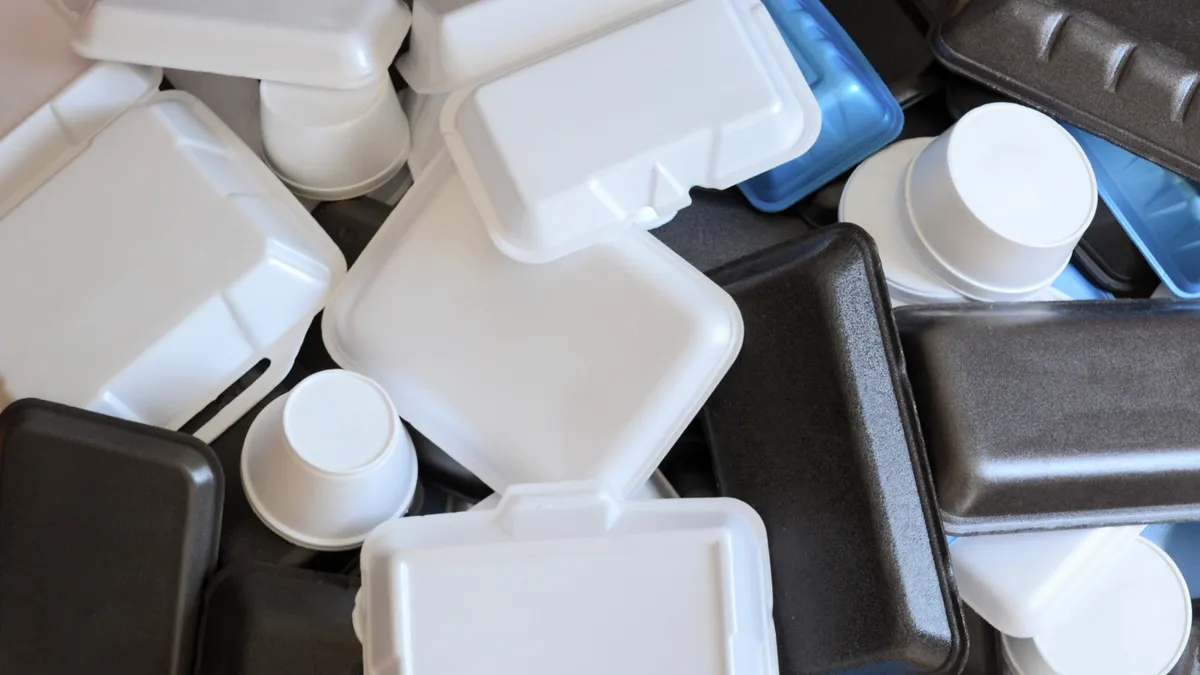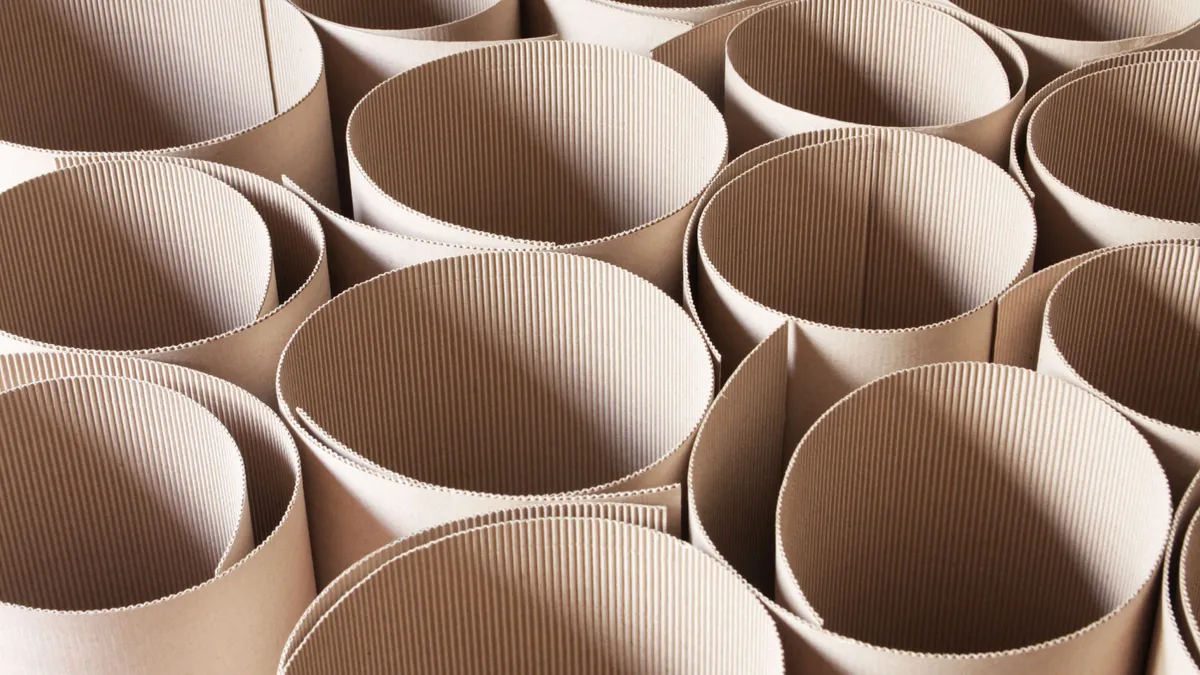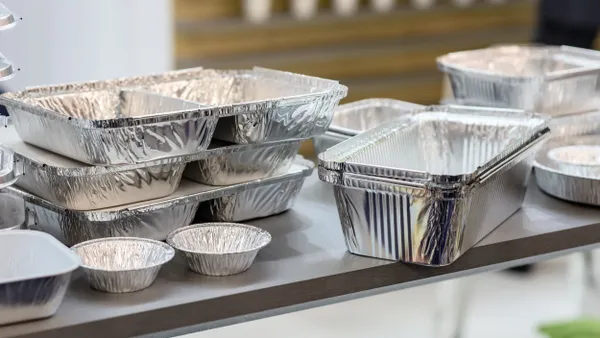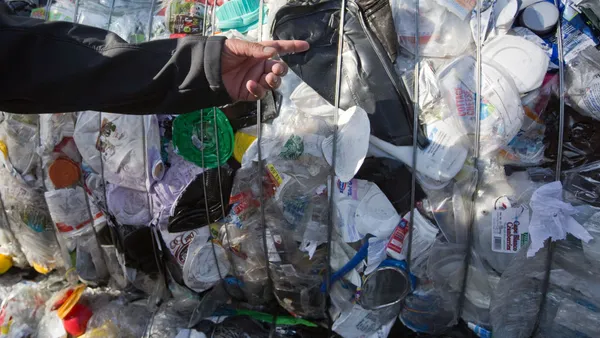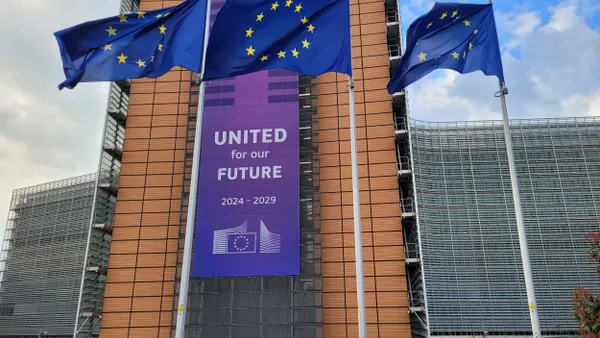Dive Brief:
- California’s Department of Resources Recycling and Recovery announced on Friday that expanded polystyrene producers are prohibited from selling, offering for sale, distributing or importing EPS food service ware in the state. This follows a Jan. 1 requirement, originating from SB 54, that such producers demonstrate that all covered EPS material met a 25% recycling rate.
- “To date, this requirement has not been met,” CalRecycle wrote in an emailed bulletin. Regarding enforcement, CalRecycle is currently “identifying EPS producers still selling and distributing EPS food service ware and ways to help them comply with the existing law,” according to CalRecycle’s Melanie Turner, SB 54 communications manager in the Office of Public Affairs.
- Producers can submit data at any time to demonstrate the 25% recycling rate as of 2025, Turner explained in an email. But the recycling rate threshold will increase in the coming years to 30% come 2028, 50% come 2030 and 65% come 2032.
Dive Insight:
CalRecycle’s announcement Friday clarifies what many people already considered a de facto ban under SB 54, California’s Plastic Pollution Prevention and Packaging Producer Responsibility Act.
Impacts had already been building. For instance, Dart Container last year cited the law when it laid off 175 people across two California facilities. California’s restriction follows recent outright foam food service product bans in Oregon and Washington as well.
Following the Jan. 1, 2025, deadline, CalRecycle said it was reviewing EPS recycling rate data. At the time, Turner said that EPS food service ware producers may be subject to investigations, with potential notices of violation that could lead to penalties of up to $50,000 per day.
Data submissions were required to demonstrate a minimum 25% recycling rate for all EPS producers throughout the state, Turner explained. According to CalRecycle, the companies that submitted information were the Honey Baked Ham Co., Highland Plastics and Mexicali Plastics. “The data provided was insufficient to calculate the statewide recycling rate because it was company-specific (rather than statewide),” Turner said.
The restriction will apply to items like takeout containers and cups. However, the food service ware requirement is not inclusive of packaging types such as molded foam inserts for electronics, appliances and fragile items, foam egg cartons, foam coolers, and foam trays used to sell pre-packaged raw meat, Turner noted. There are also some exemptions for small producers, retailers or wholesalers based on size, revenue, number of retail locations and market share.
According to a report on the impacts of plastic foam that the nonprofit Oceana released Tuesday, more than 8 million metric tons of plastic foam are produced globally every year. Oceana says that plastic foam fragments, cups and plates are among the most littered items found across the United States, where 1% or less are recycled each year. Some 12 states have tackled plastic foam reduction through legislation, as have more than 250 cities and counties, according to Oceana.
At the national level, Democrats in Congress in March reintroduced the Farewell to Foam Act, which calls for prohibiting the sale and distribution of single-use plastic foam food service ware and related products come 2028.



